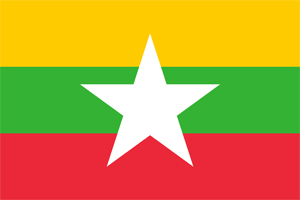The Republic of Korea's Efforts for Sustainable Development in the Water Sector
The Ministry of Environment
(
Government
)
#SDGAction50834
Description
1. In 2018, Korea enacted Framework Act on Water Management to establish integrated water management system which covers water quantity to water quality and aquatic ecosystem to water related disasters comprehensively. 2. Korea is building infrastructure including deep underground rainwater tunnels or underground drainage tunnels as well as introducing an AI-driven flood forecast system. In response to severe droughts, Korea focuses on alternative water resources technologies such as water reuse or seawater desalination. 3. Korea will operate a system to manage the entire process of water supply from water treatment plants to faucets in real-time. 4. Korea will boldly and proactively invest in the water industry to advance water technologies as well as to expand and improve water infrastructure. 5. Korea engages in various cooperative projects with international organizations including UNDP and OECD to support developing countries for their water management policies and capacity building. 6. Korea will co-organize a side event with UNESCO under the them of "Science-based Global Water Assessment." 7. Korea is expanding Green ODA projects in support of tackling climate change. In particular, Korea will organize global launching event for Green Transition Initiative (GTI). Korea will provide support tailored for the demand of each country and region through GTI.
1. Korea's integrated water management system will continue to help us to successfully resolve water shortage problems by efficiently using water resources as well as water pollution issues by conducting water quality improvement measures for each basin. 2. AI-driven Smart Water Management System will help public to have access to clean drinking water. 3. Bold and Proactive investment in the water industry will create a virtuous cycle where an investment the water industry leads to another investment in water. 4. Green Transition Initiative (GTI) will expand the platform for international cooperation in carbon neutrality and green transition efforts.
UNDP, OECD, ADB, WB, MRC, GWP Asia, UN FAO, UNESCO IHP, IWRA, UNESCO i-WSSM, APEC, IAHR, IUCN, INBO, ICOLD
SDGS & Targets
Goal 6
Ensure availability and sustainable management of water and sanitation for all
6.1
By 2030, achieve universal and equitable access to safe and affordable drinking water for all
6.1.1
Proportion of population using safely managed drinking water services
6.2
By 2030, achieve access to adequate and equitable sanitation and hygiene for all and end open defecation, paying special attention to the needs of women and girls and those in vulnerable situations
6.2.1
Proportion of population using (a) safely managed sanitation services and (b) a hand-washing facility with soap and water
6.3
By 2030, improve water quality by reducing pollution, eliminating dumping and minimizing release of hazardous chemicals and materials, halving the proportion of untreated wastewater and substantially increasing recycling and safe reuse globally
6.3.1
Proportion of domestic and industrial wastewater flows safely treated
6.3.2
Proportion of bodies of water with good ambient water quality
6.4
6.4.1
Change in water-use efficiency over time
6.4.2
Level of water stress: freshwater withdrawal as a proportion of available freshwater resources
6.5
By 2030, implement integrated water resources management at all levels, including through transboundary cooperation as appropriate
6.5.1
Degree of integrated water resources management
6.5.2
Proportion of transboundary basin area with an operational arrangement for water cooperation
6.6
6.6.1
Change in the extent of water-related ecosystems over time
6.a
6.a.1
Amount of water- and sanitation-related official development assistance that is part of a government-coordinated spending plan
6.b
Support and strengthen the participation of local communities in improving water and sanitation management
6.b.1
Proportion of local administrative units with established and operational policies and procedures for participation of local communities in water and sanitation management
SDG 14 targets covered
| Name | Description |
|---|
Deliverables & Timeline
National Water Management Plan for sustainable water management system
Resources mobilized
Partnership Progress
Feedback
Action Network

Timeline
Entity
SDGs
Region
- Asia and Pacific
Other beneficiaries
developing countries
Website/More information
Countries

















Contact Information
Tae-yun, Deputy Director

